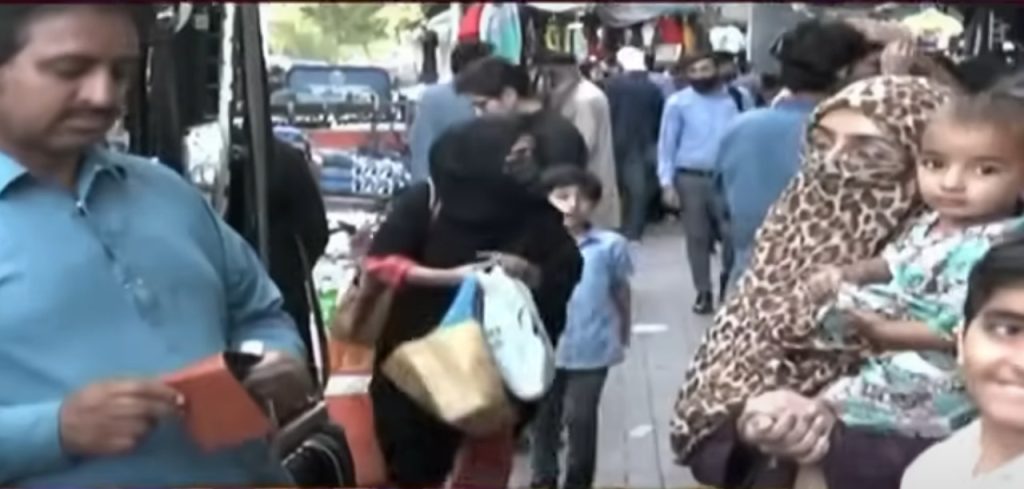
By our correspondent
KARACHI: The Eid shopping season in 2025 has been as disappointing as previous years for traders, with devastating inflation, economic collapse, and a drastic decline in purchasing power shattering both business prospects and the dreams of the poor and middle class to celebrate Eid. Despite the hustle and bustle in markets, the buying trend remained lackluster. Even in the last ten days of Ramadan, traders kept waiting for customers, but significant sales did not materialize.
In just one year, the prices of Eid-related items increased by 40 to 50 percent, while purchasing activity dropped by 25 to 30 percent compared to last year. Nearly 60 to 70 percent of the stock traders had stored for Eid sales remained unsold. According to traders, only Rs. 15 billion worth of goods could be sold this year.
Chairman of the All Karachi Traders Ittehad, Atique Mir, told the press and media that the struggling businesses, limited income, and persistently rising, unbearable inflation have swallowed the joy of Eid for the masses. Due to low purchasing power, most Eid shopping was restricted to ready-made garments, shoes, handbags, toys, hosiery, artificial jewelry, and inexpensive decorative items for women and children. Most shoppers settled for buying just one outfit instead of fulfilling all their shopping desires.
Traders declared Eid sales in 2025 even worse and more disastrous than in 2024. Over 200 markets in popular shopping districts such as Clifton, Defence, Saddar, Tariq Road, Hyderi, Gulshan-e-Iqbal, Nazimabad, Malir, Landhi, Gulistan-e-Jauhar, Liaquatabad, Bahadurabad, Jubilee, Jama Cloth, and Old City areas remained desperately waiting for customers.
Atique Mir noted that traders, fearing an unexpected political and economic crisis in the country, were hesitant to stockpile excessive inventory due to concerns over frozen capital. He lamented that the current situation has made it difficult for traders to manage business and household expenses, while repayments for goods purchased on credit have also become a major challenge.
Expressing deep regret, he criticized the artificial inflation mafia and opportunists who, in collusion with government price control authorities, pushed the prices of essential commodities to astronomical levels, crushing the poor and middle class and making even basic necessities nearly unattainable. Atique Mir also harshly criticized law enforcement agencies, claiming that during Ramadan, police, robbers, and extortionists appeared to be on the same side.
Those who managed to escape street criminals fell prey to the police instead. Meanwhile, the parking mafia blatantly disregarded the Karachi mayor’s orders, openly extorting parking fees with gangster-like tactics. Additionally, an overwhelming influx of local and non-local beggars swarmed the city, with no visible strategy from the government to curb their growing presence.



